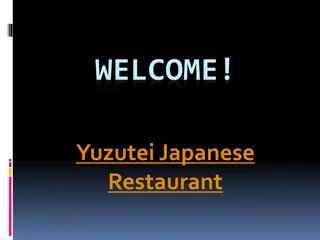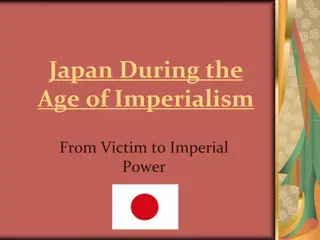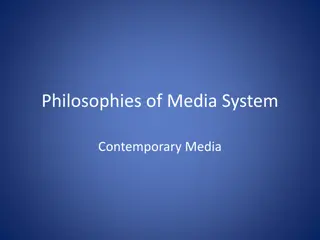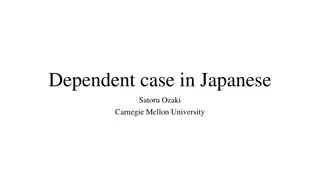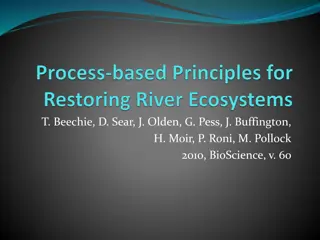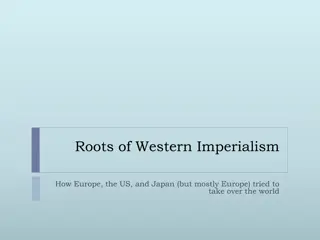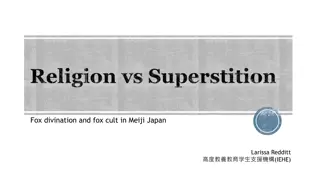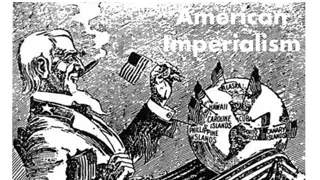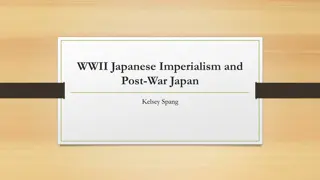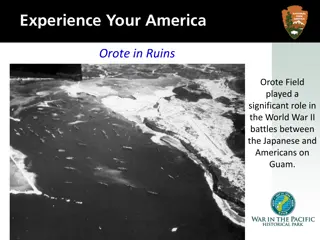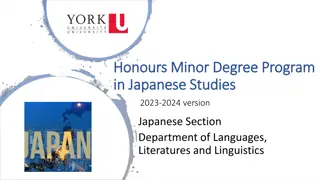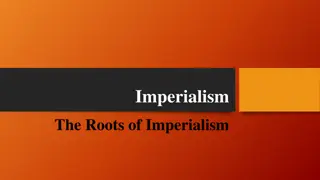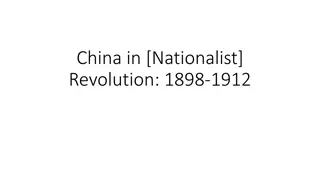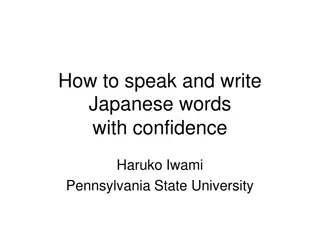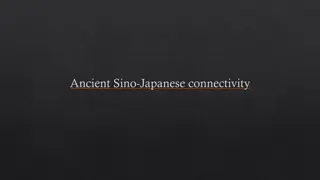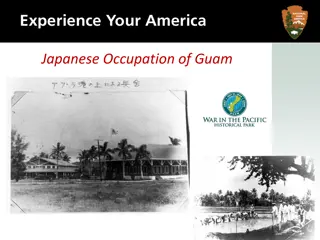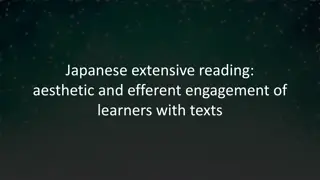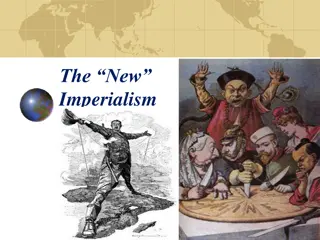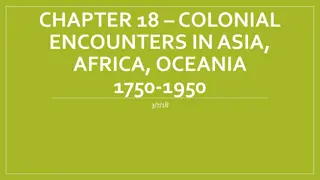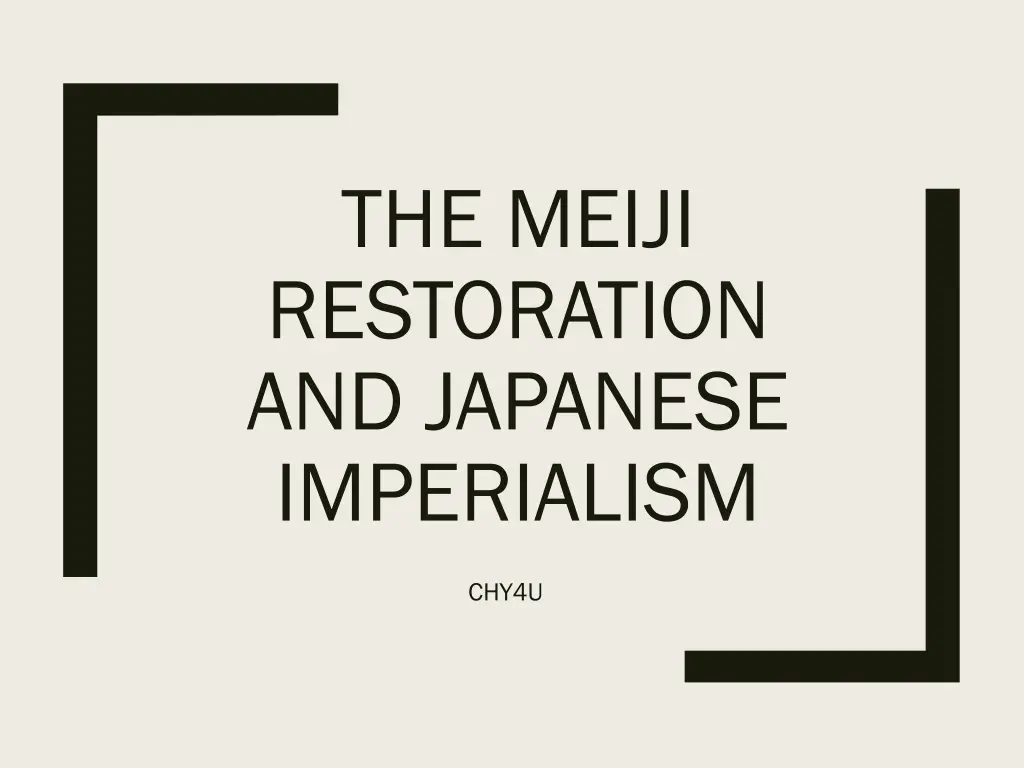
The Meiji Restoration and Japanese Imperialism in Chy4u
Explore the transformation of Japan from isolation to becoming an imperial power in the early 19th century through the Meiji Restoration and Japanese imperialism. Discover the reforms, interactions with the West, and the significant changes that shaped Japan's trajectory towards modernization and expansion.
Download Presentation

Please find below an Image/Link to download the presentation.
The content on the website is provided AS IS for your information and personal use only. It may not be sold, licensed, or shared on other websites without obtaining consent from the author. If you encounter any issues during the download, it is possible that the publisher has removed the file from their server.
You are allowed to download the files provided on this website for personal or commercial use, subject to the condition that they are used lawfully. All files are the property of their respective owners.
The content on the website is provided AS IS for your information and personal use only. It may not be sold, licensed, or shared on other websites without obtaining consent from the author.
E N D
Presentation Transcript
THE MEIJI RESTORATION AND JAPANESE IMPERIALISM CHY4U
From the 17thto 19thcentury Japan stayed closed off or isolated from the West
17thCentury Japan and the Western Barbarians Emperor (figurehea d only) The Jesuits (1549) and the Portuguese Growing Anti-European attitudes Shogun (ruler, tries to control lords) Japanese closure in 1635 The Dutch and Nagasaki Daimyo (landowning lords) Samurai (fighters) Peasants, Artisans, Merchants
How did Japan, a country once closed off from the world in the early 19thcentury, grow to become an imperial power? http://apjjf.org/data/asia_map_large.jpg Booth, Anne. Did it Really Help to be a Japanese Colony? East Asian Economic Performance in Historical Perspective . Asia-Pacific Journal. May 2, 2007. Accessed April 4, 2016. http://apjjf.org/-Anne-Booth/2418/article.html
What did Opening Up Entail? Figure 1 Most favoured nation: Most favoured nation: any privileges given to other foreign countries are also given to the favoured nation Access to greater number of Japanese ports After 200 years, Japan was no longer isolated from the West True portrait of Commodore Perry, envoy of the Republic of North America. Mortensen, Joan E. The Case for Commodore Perry in the Classroom. University of Texas at Dallas. 2008. Accessed April 4, 2016. http://worldhistoryconnected.press.illinois.edu/4.2/mortensen.html
Categorizing Reforms Type Type of Reform Reform of Centraliz Centraliz ation ation Restoratio Restoratio n of the n of the Emperor s Emperor s Power Power Modernizatio Modernizatio n n Military Political Economic Social Western Dress Kobayashi, Kiyochika. Emperor Meiji and His Consort in the Plum Garden . In The Harvard Art Museum. 1877. Accessed April 4, 2016. http://www.harvardartmuseums.org/collections/object/29925
Type Type of Reform Reform of Centraliza Centraliza tion tion Restoration Restoration of the of the Emperor s Emperor s Power Power Modernization Modernization Military One army Navy Compulsory military service for men Civil service created Constitution modelled after Germany Political Centralized government with authority in emperor Economi c Banking, railroads, ports, telegraphs, postal system, industrialization in shipyards, copper, coal steel Compulsory education for boys and girls Western Dress Social But many of these reforms could be put in two or more categories of restoration (eg. Centralization, restoration of emperor s power, modernization). Together Together, these reforms all facilitated Japan s transformation.
Emperors Poem May our country, taking what is good, and rejecting what is bad, be not inferior, to any other. (World History, 646) Put this quote in the context of: Economic motivations Social Darwinism Nationalism Imperialism
Japan and Social Darwinism 1894 The First Sino-Japanese War: A weakened China An industrialized and modern Japan Taiwan and treaty ports Annexing Korea: The military police era
In your group, read the reaction to westernization in Japan Debates Western Culture (pg 314). How would this perspective justify Japanese Imperialism? Where would you place this perspective on the political spectrum? As we assess and share these reactions you should annotate your worksheet annotate your worksheet.
How do these headlines embody Japanese perspectives after the Meiji Restoration? *Chosen: name for Korea under Japanese rule Kingston, Jeff. Uneasy Neighbors Across the Sea. Japan Times, August 22, 2010. Accessed April 4, 2016. http://www.japantimes.co.jp/life/2010/08/22/general/uneasy-neighbors-across-the-sea/#.VylvE_krLcs

